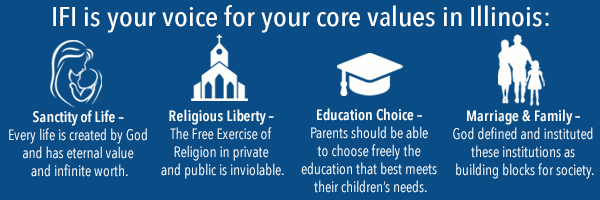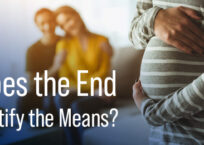
Written by Sam Sorbo
Last month, the theology editor at Christianity Today Stefani McDade published a piece defending her choice to eventually send her young daughter, currently a mere toddler, to a local government school.
The back-to-school season prompted her to examine how we think about education, discipleship, and the faithfulness of God.
Amen to that, if thinking is what is on order but, sadly, the article is simply a regurgitation of the age-old, feeble arguments for off-loading children into a system that despises them as cogs in a wheel, numbers on a spreadsheet, and inmates to be enslaved.
McDade dramtically justifies her opinion by contrasting the homeschool advocate Kirk Cameron’s extreme predictions of dire outcomes from school exposure to the more modest assertions of writer and school advocate Jen Wilkin, who cites
“benefits for children including a more diverse socialization, a healthy exposure to different worldviews, and fulfilling the call of being a Christian witness in the world.”
These are neither benefits, nor attainable.
Wilkin then boasts,
“Our participation in the public school system was directly related to loving our neighbors.”
Sending our children as missionaries into the battlegrounds controlled by the anti-Christians is ignoble and dangerous. Jesus was not enamored of forcing ministry from innocent babes; in fact, He protected them from it in Matthew 18:10, where He told His followers,
“Take heed not to despise one of these little ones. . .”
To “despise” is to do unseemly things in front of, or even lie to, children. After all, who is more despicable than the master of lies, the devil? With all the pride flags, Marxist theology, critical race theory, gender propaganda, and pornography in the textbooks and adorning our classroom walls, it is certain the children will be despised, perhaps not by every teacher, or every administrator, but even one who damages a child is too many.
Furthermore, as Christians, we ought to know that most government schools lie to children especially about science, history, and the formation of the world, simply by concealing from them the most important book known to mankind, the Bible.
Teachers who aren’t Bible-believers will happily lie to the child, although it isn’t necessarily their fault and they may be forgiven. To lie to a child is to despise the child. To send a child to liars to be “educated,” and to tell this child he will be taught things he needs to know by a band of liars, is to “despise” this child.
Christians who justify sending their children to factory schools must wrestle with this simple truth, McDade’s protestations about the child gleaning a healthy knowledge of the Scriptures outside (and despite – pun noted) school, notwithstanding.
She even references Bible verse,
“Anyone who despises a child or causes one to stumble is better off drowning in the depths of the sea (Matt. 18:1–6) than facing the wrath of God for their actions.”
Sending a child into a pit of zealous idealogues who disdain and deride Christianity, while presenting them as ultimate authorities of knowledge and wisdom, is expressly to cause the child to stumble.
Unnecessary as it may be, we should also disprove the two other false claims about the benefits of school for children that Wilkin ignorantly proposes: “diverse socialization and exposure to different worldviews.”
How might these two indefinite feel-good ideas benefit a child? Society has long claimed that children are well-socialized in schools, although every school shooting, the rampant rise in bullying, and the horrific escalation of gender confusion, cutting, suicidal ideation, anxiety and other mental health issues suggest a completely contrarian analysis.
The fact that children emerge social at all from their schooling is testimony to the resilience of the children, not to the schools’ facility. Most schools discourage fraternizing during class, and socializing between classes is entirely unsupervised.
Schools don’t facilitate “socialization.” The benefits of “diversity” of socialization are a mystery. The only people who emphasize diversity are adults, not children, to whom everyone is automatically equal.
Focusing on diversity is training in racism.
While children can certainly experience diverse ethnic groups at school and elsewhere without incident (and without definitive expectations of ‘successful socialization,’) exposing children to differing worldviews is downright dangerous. It is in the formational years that children adopt their worldviews (their religion.)
For McDade, it seems, despite being a Christian, she is accepting of other worldviews and wants her child to equivocate between them. She might likely argue against the Bible being reinstated in schools. This is a betrayal of the faith. Jesus said,
“I am the Way, the Truth, and the Life.”
There are but two worldviews: Christianity and every other. To expose a child to unchristian beliefs is to place stumbling blocks in her path, which easily dispatches the fallacy of “differing worldviews” as offering any benefit to children.
McDade defends her choice for public school by qualifiers of location (a ‘good’ school) and her specific child, as if she knows whether her child is extroverted and would possibly thrive around other children all day long, or introverted, which would likely strain and stress the youngster. She then offers that studies show there are more important elements for building and safeguarding our kids’ faith than the school they attend.
No duh. Schools do everything to destroy that faith, from training children that God does not exist to openly mocking Him. Of course, children need other avenues to learn their faith, but none of those will ever compete with the home field advantage.
McDade continues,
“Another major consideration is that I would rather most of my child’s first close encounters of the worldly kind happen while she’s still under my roof, not after she leaves home.”
Homeschooling would better serve her, even in this endeavor, but she fails to realize that as a home educator, she would have final say over most, if not all, of her daughters’ acquaintances and alliances, instead of falling prey to the whims of a fickle school administrator with the power to determine classroom composition, and the luck of the draw with teacher assignments.
It sounds suspiciously like the ridiculous argument that the girl will be sexualized at some point, so why not get her married at age six?
McDade credits her own bullying experiences with galvanizing her faith. Setting a child up to be bullied is not a strategy. She would do better to guard her daughter’s heart more fervently.
I’ve heard too many stories of devout parents whose children stray from the faith after attending factory schools.
Every school is faith-based, after all.
She argues that while keeping kids out of school won’t guarantee them safety from the bullies, putting them in school offers the parents the opportunity to guide them through being bullied! This would be laughable if it weren’t so tragic.
Think of it like strength training: Your children need to build muscles of faith, and public school can provide weight to lift while you’re around to spot them. Let them wrestle with worldly counternarratives to God’s truth while they’re still under your care.
That may feel risky, but the alternative—keeping them sheltered, then letting them be exposed to everything all at once when they leave home for work or college—is risky too.
McDade creates this tremendously false narrative: that in school they are under your care, but at home they are too sheltered to experience anything of the real world. Her worldview has embraced school as a panacea and everything else pales in comparison.
School, however, is not part of the Christian worldview, but of the secular one. Unfortunately, her faulty secular reasoning may lead many Christian parents astray.
The author’s own unfortunate school experiences inform her misguided insights on school options for her daughter. This is often the case for parents overwhelmed with the awesome responsibility of effectuating the education of their children, but it need not be so.
Investing a bit of time to ferret out the true definition of and best practices for education quickly exposes the schools for the scams they are, their fraud being further discovered with each gender transition and every pedophile principal’s arrest.
McDade, finally, declares her reliance on God’s sovereignty in her daughter’s protection and guidance, while recognizing His reliance on her for the girl’s upbringing. Entrusting her daughter to any school is a betrayal of God’s faith, however unintentional.
You shall teach them diligently to your children, and shall talk of them when you sit in your house, when you walk by the way, when you lie down, and when you rise up. (Deuteronomy 6:7, NKJV)
What is the point of education?
It can’t be just to go to college for more education. It can’t be just to get a good job – a good job is not equivalent to happiness. Schools have redefined education in their own image, and perverted it, giving them exclusivity, leaving their pupils feeling inadequate and incapable – i.e. the very opposite of “educated.”
Education should be to prepare children to be adults, to impart correct worldview, teach them truth, beauty, and goodness, and call them to virtue.
Education is not data entry, as our schools taught us, but a software download. Teaching a child to read opens the world to her. Teaching some math and how to follow the textbook lessons stokes the fire for an interested, curious young person.
The schools make learning drudgery, and we mistakenly conclude that kids don’t naturally want to learn.
That’s perhaps the biggest lie of all.
God made all the little children curious and creative. Teach your children to teach themselves and set them free from the schools, because education should be happening all the time for our little ones.
Let’s retire “back-to-school” once and for all.






















